project.ppt
- Количество слайдов: 21
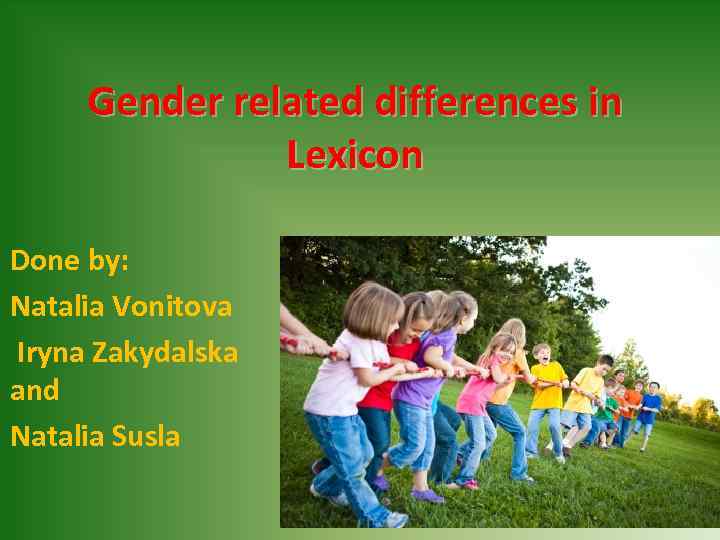
Gender related differences in Lexicon Done by: Natalia Vonitova Iryna Zakydalska and Natalia Susla
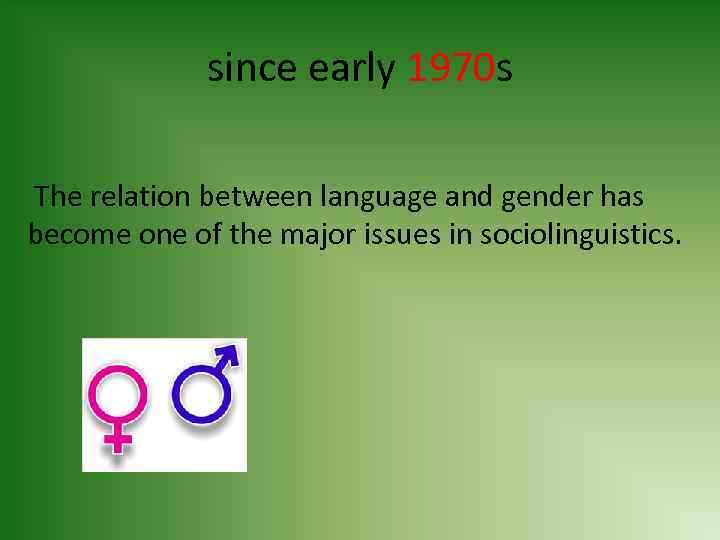
since early 1970 s The relation between language and gender has become one of the major issues in sociolinguistics.

The sexes communicate differently (and women do it better) because of the way their brains are wired. q The female brain excels in verbal tasks - the male brain is better adapted to visual-spatial and mathematical tasks q. Women like to talk - men prefer action to words
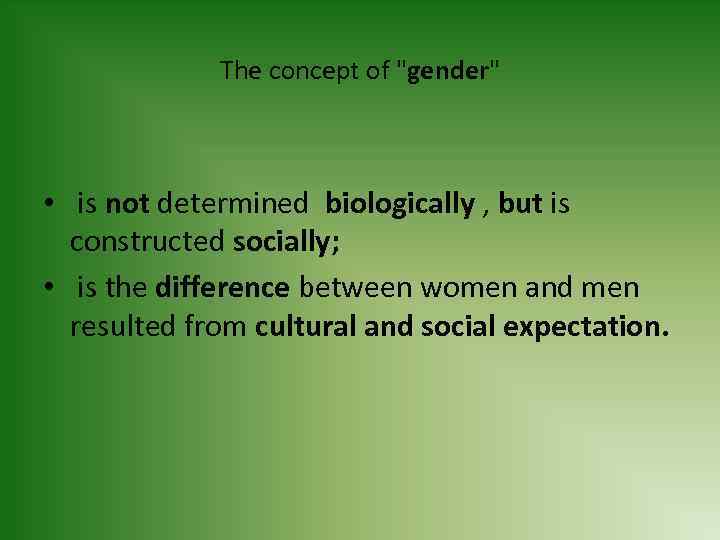
The concept of "gender" • is not determined biologically , but is constructed socially; • is the difference between women and men resulted from cultural and social expectation.
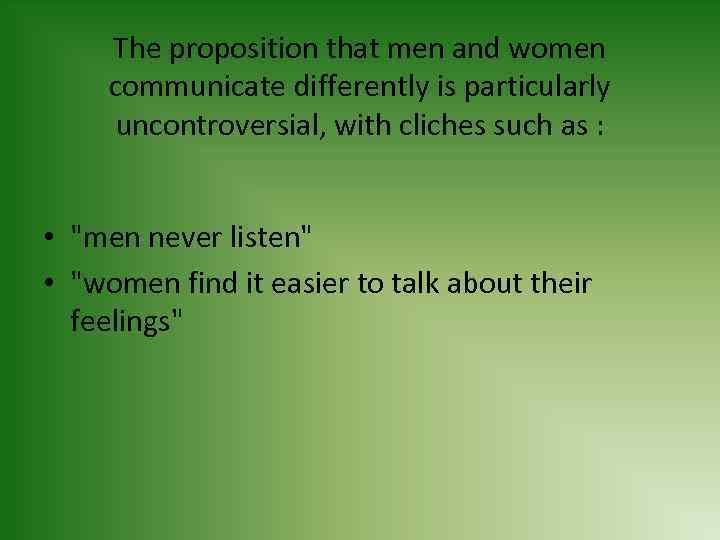
The proposition that men and women communicate differently is particularly uncontroversial, with cliches such as : • "men never listen" • "women find it easier to talk about their feelings"
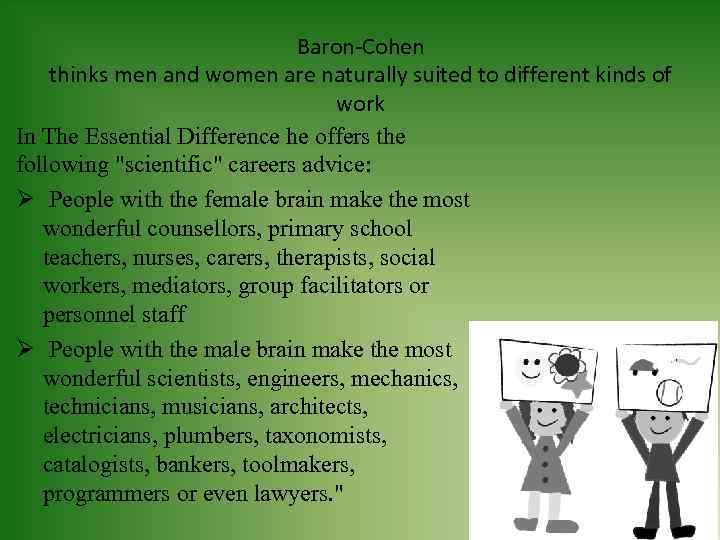
Baron-Cohen thinks men and women are naturally suited to different kinds of work In The Essential Difference he offers the following "scientific" careers advice: Ø People with the female brain make the most wonderful counsellors, primary school teachers, nurses, carers, therapists, social workers, mediators, group facilitators or personnel staff Ø People with the male brain make the most wonderful scientists, engineers, mechanics, technicians, musicians, architects, electricians, plumbers, taxonomists, catalogists, bankers, toolmakers, programmers or even lawyers. "
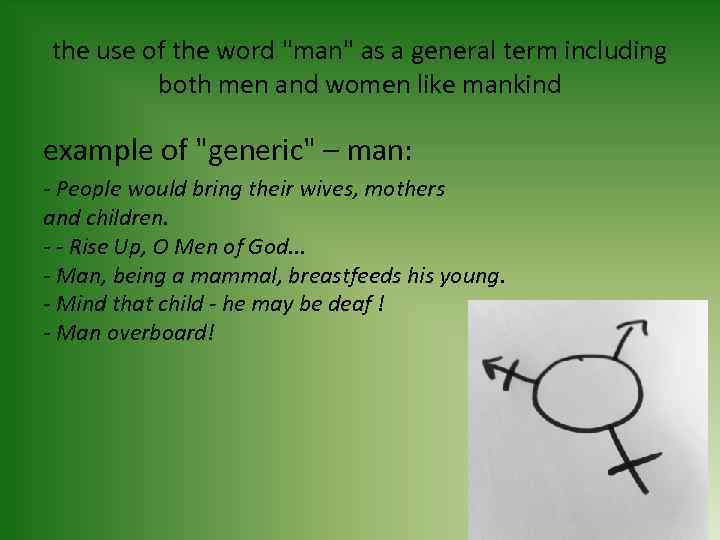
the use of the word "man" as a general term including both men and women like mankind example of "generic" – man: - People would bring their wives, mothers and children. - - Rise Up, O Men of God. . . - Man, being a mammal, breastfeeds his young. - Mind that child - he may be deaf ! - Man overboard!
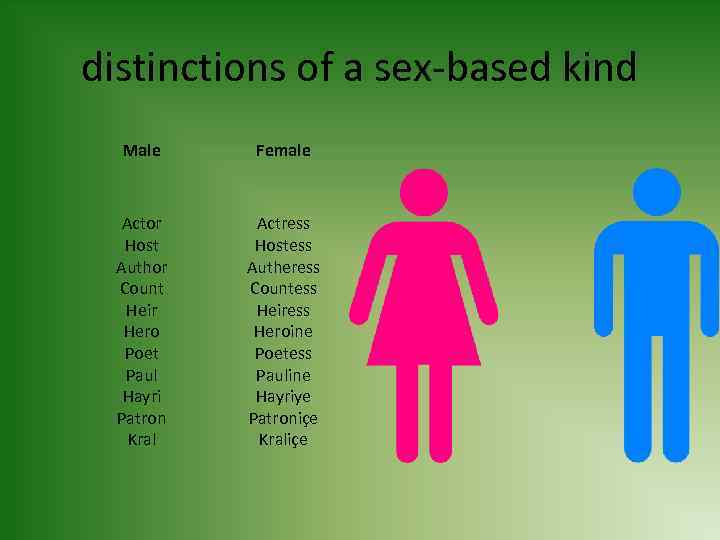
distinctions of a sex-based kind Male Female Actor Host Author Count Heir Hero Poet Paul Hayri Patron Kral Actress Hostess Autheress Countess Heiress Heroine Poetess Pauline Hayriye Patroniçe Kraliçe
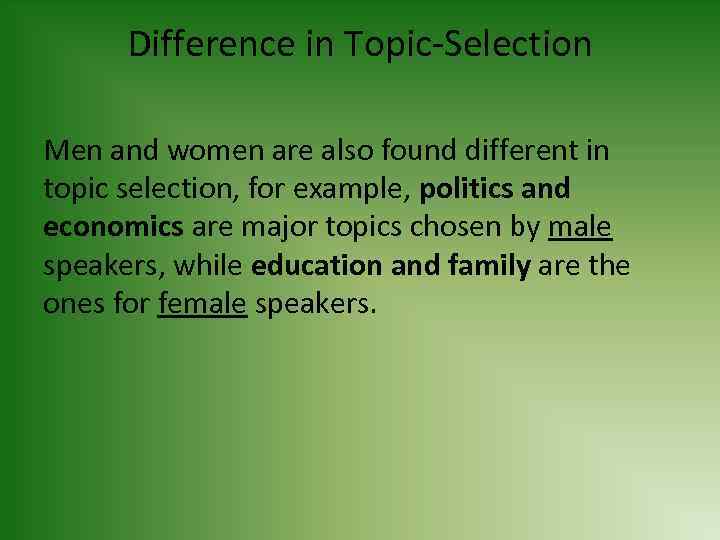
Difference in Topic-Selection Men and women are also found different in topic selection, for example, politics and economics are major topics chosen by male speakers, while education and family are the ones for female speakers.
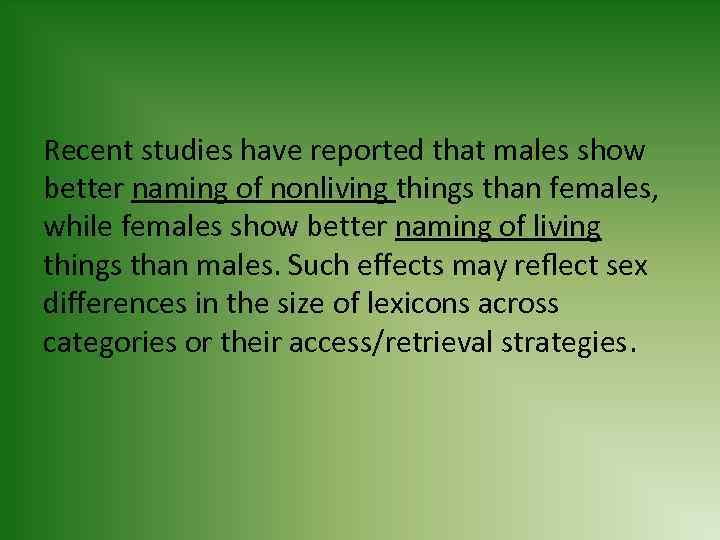
Recent studies have reported that males show better naming of nonliving things than females, while females show better naming of living things than males. Such effects may reflect sex differences in the size of lexicons across categories or their access/retrieval strategies.
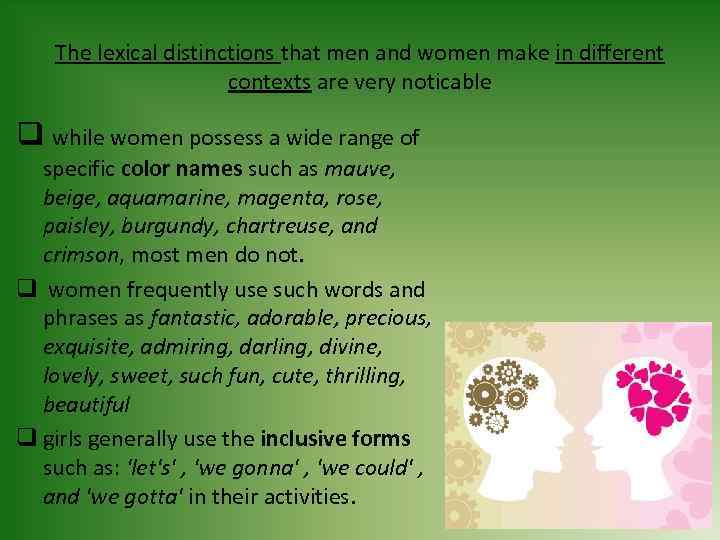
The lexical distinctions that men and women make in different contexts are very noticable q while women possess a wide range of specific color names such as mauve, beige, aquamarine, magenta, rose, paisley, burgundy, chartreuse, and crimson, most men do not. q women frequently use such words and phrases as fantastic, adorable, precious, exquisite, admiring, darling, divine, lovely, sweet, such fun, cute, thrilling, beautiful q girls generally use the inclusive forms such as: 'let's' , 'we gonna' , 'we could' , and 'we gotta' in their activities.
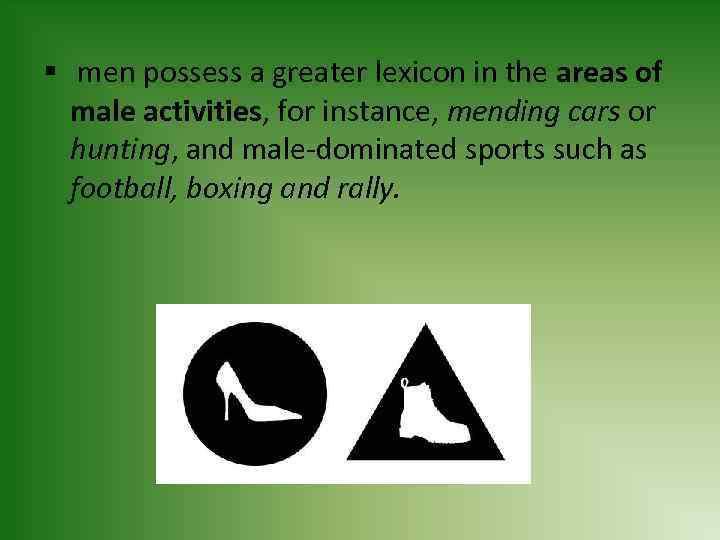
§ men possess a greater lexicon in the areas of male activities, for instance, mending cars or hunting, and male-dominated sports such as football, boxing and rally.
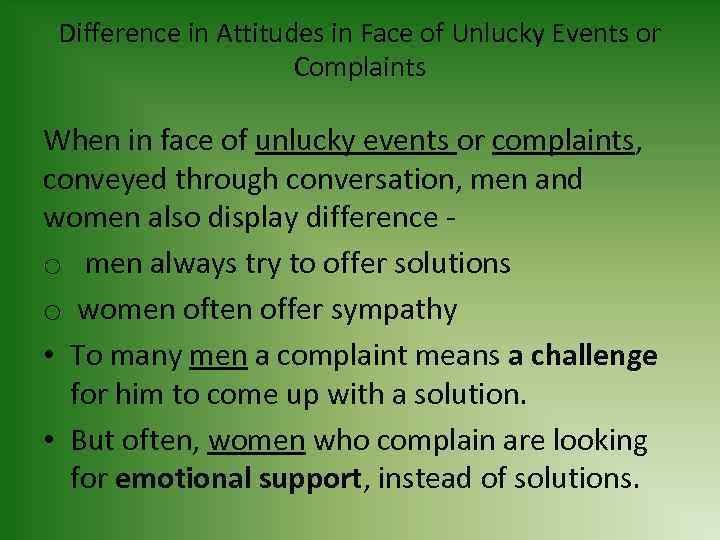
Difference in Attitudes in Face of Unlucky Events or Complaints When in face of unlucky events or complaints, conveyed through conversation, men and women also display difference o men always try to offer solutions o women often offer sympathy • To many men a complaint means a challenge for him to come up with a solution. • But often, women who complain are looking for emotional support, instead of solutions.
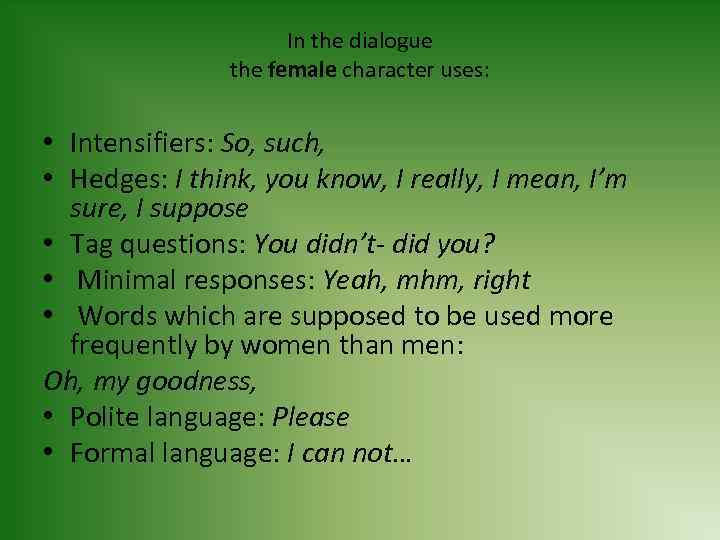
In the dialogue the female character uses: • Intensifiers: So, such, • Hedges: I think, you know, I really, I mean, I’m sure, I suppose • Tag questions: You didn’t- did you? • Minimal responses: Yeah, mhm, right • Words which are supposed to be used more frequently by women than men: Oh, my goodness, • Polite language: Please • Formal language: I can not…
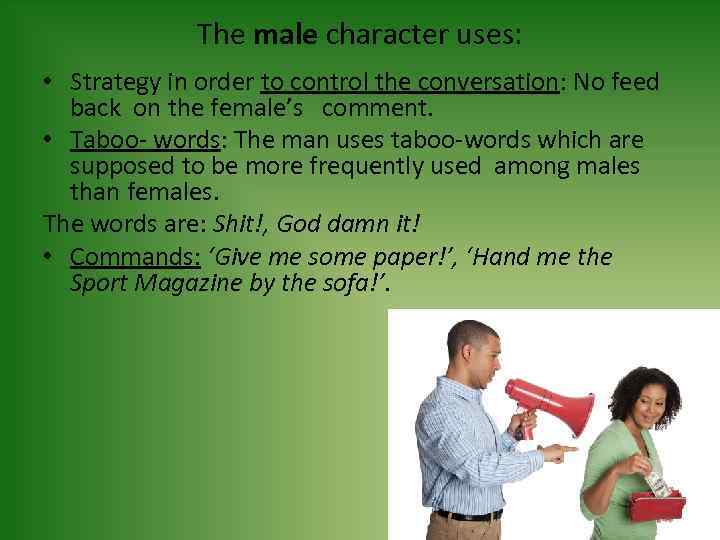
The male character uses: • Strategy in order to control the conversation: No feed back on the female’s comment. • Taboo- words: The man uses taboo-words which are supposed to be more frequently used among males than females. The words are: Shit!, God damn it! • Commands: ‘Give me some paper!’, ‘Hand me the Sport Magazine by the sofa!’.
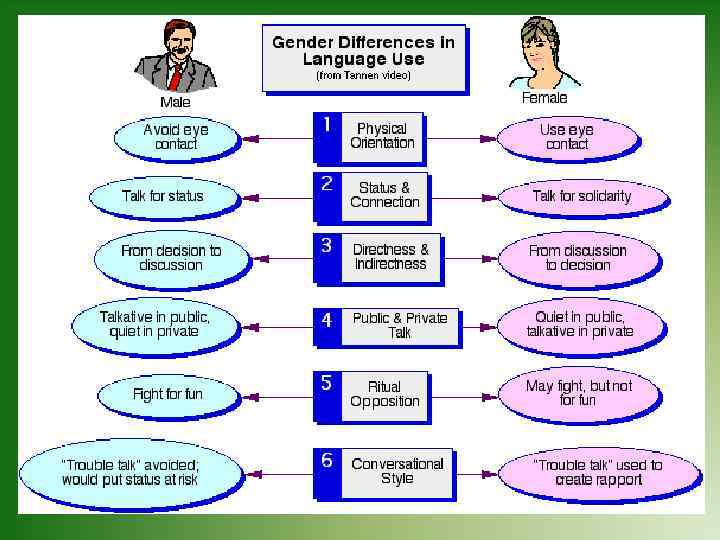
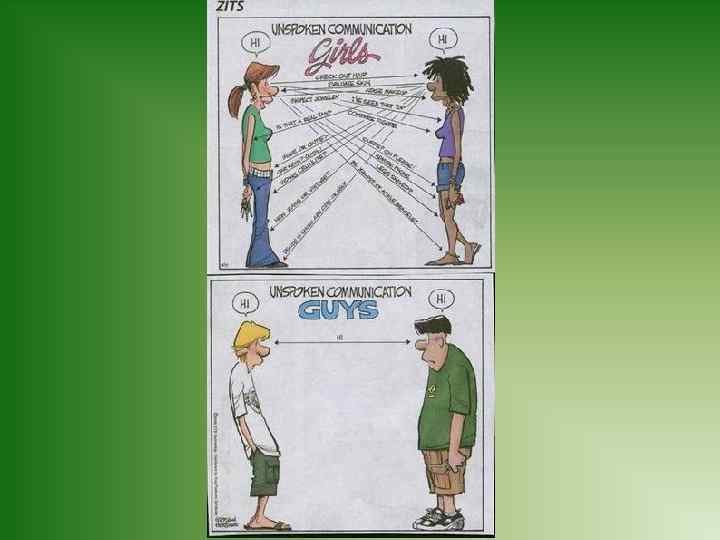
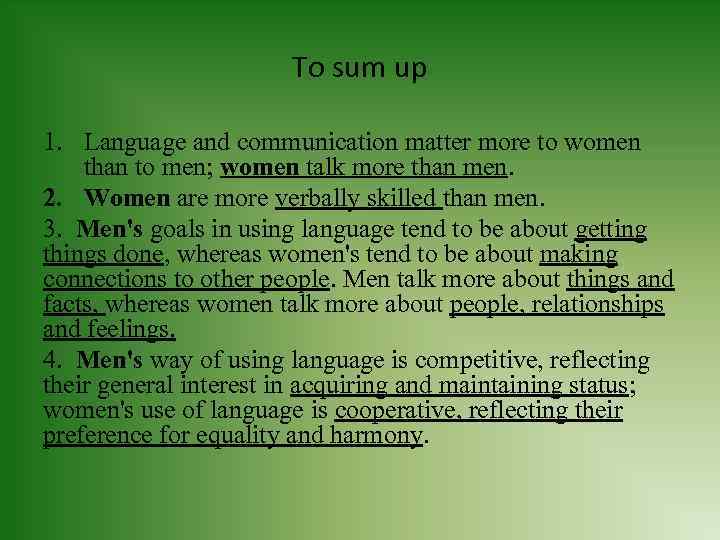
To sum up 1. Language and communication matter more to women than to men; women talk more than men. 2. Women are more verbally skilled than men. 3. Men's goals in using language tend to be about getting things done, whereas women's tend to be about making connections to other people. Men talk more about things and facts, whereas women talk more about people, relationships and feelings. 4. Men's way of using language is competitive, reflecting their general interest in acquiring and maintaining status; women's use of language is cooperative, reflecting their preference for equality and harmony.
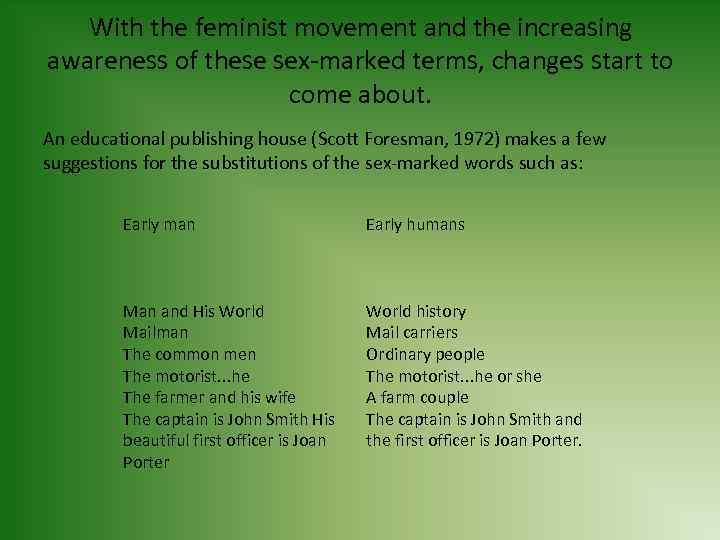
With the feminist movement and the increasing awareness of these sex-marked terms, changes start to come about. An educational publishing house (Scott Foresman, 1972) makes a few suggestions for the substitutions of the sex-marked words such as: Early man Early humans Man and His World Mailman The common men The motorist. . . he The farmer and his wife The captain is John Smith His beautiful first officer is Joan Porter World history Mail carriers Ordinary people The motorist. . . he or she A farm couple The captain is John Smith and the first officer is Joan Porter.
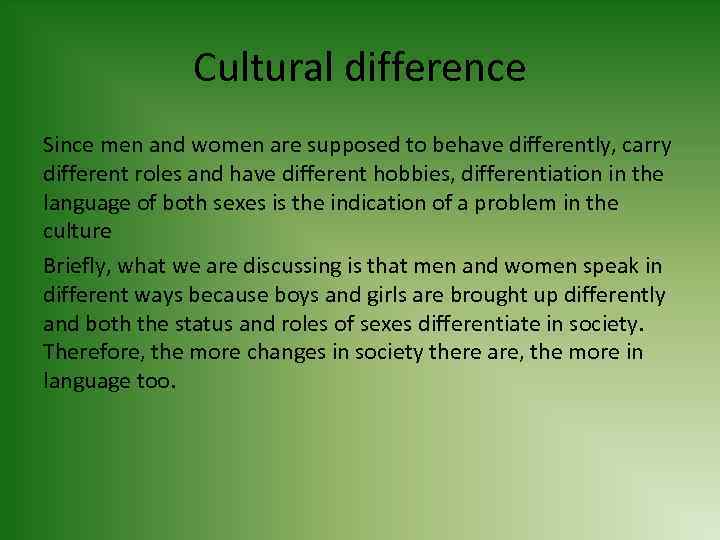
Cultural difference Since men and women are supposed to behave differently, carry different roles and have different hobbies, differentiation in the language of both sexes is the indication of a problem in the culture Briefly, what we are discussing is that men and women speak in different ways because boys and girls are brought up differently and both the status and roles of sexes differentiate in society. Therefore, the more changes in society there are, the more in language too.
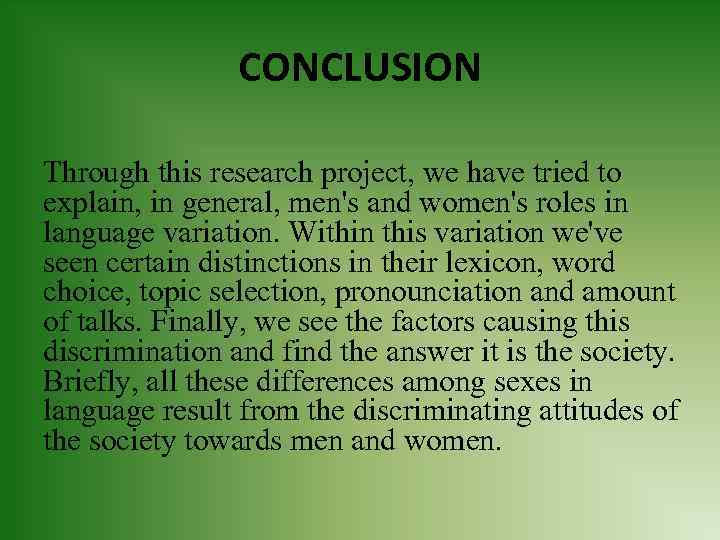
CONCLUSION Through this research project, we have tried to explain, in general, men's and women's roles in language variation. Within this variation we've seen certain distinctions in their lexicon, word choice, topic selection, pronounciation and amount of talks. Finally, we see the factors causing this discrimination and find the answer it is the society. Briefly, all these differences among sexes in language result from the discriminating attitudes of the society towards men and women.
project.ppt